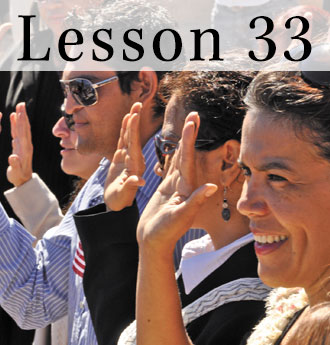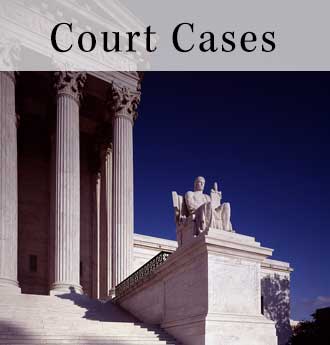Lesson 33: What Does It Mean to Be a Citizen?
Lesson Purpose
Justice Louis D. Brandeis once remarked that "the only title in our democracy superior to that of president is the title citizen." Brandeis was acknowledging one of the oldest principles of American democracy, part of the nation's legacy of classical republicanism. America's experiment in self-government depends foremost not on presidents, members of Congress, or justices, but on each of us as citizens. This unit begins with a discussion of influences of classical republicanism and natural rights philosophy on Americans' ideas about citizenship. It concludes by offering you the opportunity to discuss some of the most fundamental questions of citizenship. This lesson examines the concept of "citizen," how the concept has changed in American history, how one becomes a citizen, and the moral and legal rights and obligations of citizens.
When you have finished this lesson, you should be able to explain the meaning of citizenship in the United States, the ways Americans become citizens, and why all American citizens are citizens both of their states and their nation. You also should be able to identify essential rights and responsibilities of citizens, and why citizenship is particularly complicated for Native Americans. You should be able to describe the process of naturalization, differences between citizens and resident aliens, and how citizenship can be lost. Finally, you should be able to evaluate, take, and defend positions on the legal and moral rights and obligations of citizens.







